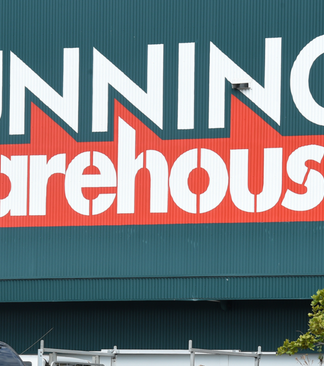Small businesses are the backbone of the global economy. As of 2022, there are roughly 400 million SMEs globally, employing over 50 percent of the world’s workforce.
Owning a small business is a dream for many people, but business ownership is anything but rosy. It’s now common knowledge that most small businesses fail within a decade. There are many reasons these enterprises collapse, some being the mistakes of the owners and others being out of their control.
In this article, our focus is on small business ownership mistakes. Read on to learn more about them and what you can do to steer your business to success.
1. Starting a Business Without Adequate Entrepreneurship Expertise
On the surface, starting and running a business looks like an easy thing to do. Just find a commercial space or build an online store, stock your product, and start selling, right?
Well, there’s more to running a business than that. In fact, entrepreneurship is a profession just like any other. You don’t wake up one morning and decide to start a new occupation as a business. Technically you can, but you’ll be setting yourself up for failure.
If you don’t have any entrepreneurship knowledge, it’s important to gain it before opening a business. There are many professional courses that will teach you everything you need to become business-savvy. Learn how this online course can help you start a business, for example.
Learning doesn’t stop after you’ve started a business. Keep pursuing more entrepreneurship knowledge so that you’re better equipped to handle the emerging challenges of business ownership.
2. Failing to Validate an Idea Before Starting Up
Every business sells a product and/or service. This generates revenues, from which you earn a profit and get the funds to expand the business or at least keep the lights on.
Are you selling a product that people want to buy?
A common mistake some small business owners make is starting a business before establishing whether the product or service they intend to sell will generate sufficient market demand. They spend substantial money on product development and inventory, only to bring it to market and find that it’s not selling.
Always validate the commercial viability of your idea before launching a new product or service. By conducting consumer surveys and deploying other market research methods, you’ll be in a good position to tell whether your product is commercially viable.
3. Starting Up Without a Business Plan
A 2019 survey of some of the most successful companies in the U.S. revealed that only 21 percent of founders had a solid business plan at startup. 58 percent had a loose plan, and 29 percent didn’t have any business plan at all.
This research shows that it’s indeed possible to start a successful enterprise without having any business plan at all. However, it’s not advisable to follow the path of the founders who had no plan at all.
Why? You ask.
A business plan is like a roadmap. It fleshes out important details about your business and maps out the way forward. Following a business plan will keep you on the right course, especially if it’s a plan built on a proven business model. Without a detailed plan, it’s easy to lose sight of where you’re going.
Drawing a good business plan requires some know-how. You may have brilliant ideas about how you want to run your company, but if you’ve never written a business plan before, it’s smarter to hire an experienced small business consultant to draw it for you. This should be on your business startup checklist.
4. Inadequate Funding
Of the many small businesses that fail, 82 percent owe their failure to financial challenges, especially poor cash flow. Yet, several entrepreneurs opt to start their businesses with inadequate funding. Big mistake!
It’s understandable if you’re assuming that your business will start generating revenue soon after it opens its doors. Some businesses do this, but others take several months or even years before generating sustainable revenues.
If you start out with inadequate capital and the business fails to hit the expected revenue targets, you’ll grind right into a cash crunch. Unless you can raise more working capital quickly, you may have no choice but to shut down the business.
And, even if you’re able to raise more money, chances are you’ll resort to expensive business loans and lines of credit. This will add to your business expenses and can further compound the financial challenges you’re facing.
The solution to this is simple. Don’t, at any cost, start a business without adequate capital at your disposal. This also highlights the importance of drawing up a business plan, since it will provide a clear breakdown of your capital needs and revenue projections.
5. Choosing the Wrong Business Structure
Before you register a business with the relevant government authorities, you must choose a business structure. You could start a:
- Sole proprietorship
- Partnership
- Limited liability company
- S or C corporation.
Each business structure has its pros and cons and is suited to different needs. For instance, while a sole proprietorship might be the go-to structure for many small business owners, there are others who may want to open an LLC because of the various tax benefits and personal liability protection it offers.
Choosing a structure that isn’t ideal for your company can have some negative implications. For instance, if you’re planning to raise equity capital for your startup, you need a structure, such as an LLC or corporation, that gives your company a professional look. Otherwise, potential investors could reject your proposals.
6. Bad Physical Location
If you’re starting a brick-and-mortar business, location is a vital factor to consider. Especially if it’s a walk-in store, you want it to be in a strategic location where customers can access it easily.
Besides hurting your customer attraction efforts, a bad location can make it difficult for you to outcompete other businesses. Always choose a location that doesn’t have many competitors.
It also helps to keep in mind the cost of doing business in a location before setting up your business. As a smart business owner, you don’t want to settle in a location where rental prices are sky-high. Spending most of your budget on commercial space when you’re running on a shoestring budget isn’t a savvy move.
7. Underinsuring Your Business
Business ownership comes with a number of risks, including:
- Financial risks
- Legal risks
- Compliance risks
- Operational risks
- Reputational risks
- Human risks
Although the specific risks you face will depend on the nature of your business, it’s your responsibility to implement a suitable risk management strategy. If yours is a food services business, for example, there are risks of fire; employees can get hurt on the job, and customers can sustain injuries (premises liability).
Purchasing business insurance is an effective risk management method, but some business owners fail to insure or underinsure, their business. General liability insurance will cover most of your liabilities, but it’s not enough. You need other types of business insurance, such as commercial property insurance, business interruption insurance, workers’ compensation insurance, and cyber insurance.
With adequate insurance, you won’t need to dig into your business’s pockets to pay for property damage or settle compensation claims.
8. Underestimating the Importance of Cybersecurity
As a small business owner, cybersecurity is probably the last thing on your worry list. After all, why would hackers come after a small business without any useful data to steal?
The shock on you! More than 50 percent of cyberattacks now target small enterprises like yours. Hackers know these businesses don’t have any major cybersecurity safeguards, which makes them soft targets.
Considering that a single cyber attack can cost your business about $4 million, and the fact that about 60 percent of small businesses close shop within six months of an attack, you’re wrong to underestimate the importance of cybersecurity.
In addition to purchasing adequate cyber insurance, ensure you’ve taken practical steps to enhance your company’s cybersecurity. Hire an in-house cybersecurity specialist or outsource the function to an IT security firm.
Avoid These Small Business Ownership Mistakes
Owning a small business is a big achievement. One of your goals is to grow it into a large business. However, that will only be possible if you can avoid the business ownership mistakes fleshed out in this article.
Explore our blog for more small business tips and insights.















